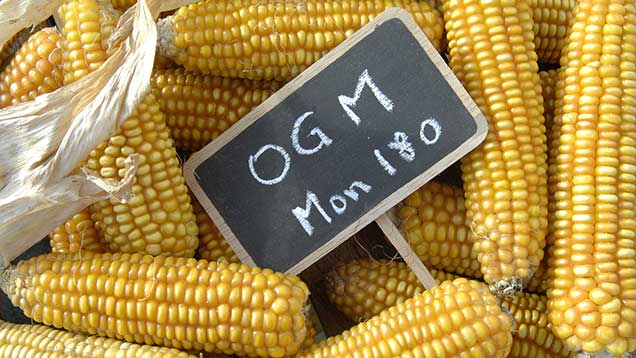Europe lagging behind all other continents on GMs, report shows
 ©Sioa Press/Rex Shutterstock
©Sioa Press/Rex Shutterstock Plantings of genetically modified crops declined slightly across Europe last year amid concerns over their impact on the environment and human health.
Limited choice for farmers in the EU caused by a lack of product authorisations and national bans meant fewer European farmers grew GM crops in 2014.
According to figures released by the International Service for the Acquisition of Agri-biotech Applications (ISAAA), GM crop plantings grew globally for the 19th consecutive year.
See also: ‘Tipping point’ for GMs and direct drilling
Last year, 18 million farmers planted 181.5ha of GM crops in 28 countries, up from 175.2m ha in 27 countries in 2013.
However, in Europe farmers in five EU countries – Spain, Portugal, Czech Republic, Slovakia and Romania – planted 143,016ha of insect resistant biotech maize, down marginally by 3% on 2013. This figure represents less than 1% of global GM crop production.
Spain was by far the largest adopter, planting 92% of the total Bt maize hectarage in the EU.
In 2013, US biotech company Monsanto withdrew all its pending applications to grow new GM crops in Europe, reflecting the frustration felt by many biotech companies towards strict EU regulations governing GMs.
Although the UK government has spoken out in favour of giving farmers rights to grow GMs, they remain banned for commercial cultivation in this country.
Commenting on the ISAAA’s report, Beat Späth, director of agricultural biotechnology at EuropaBio, the trade association representing bioindustries, said Europe was lagging behind all other continents on GM crop cultivation and “risked becoming the world’s farming museum”.
“Our farmers are still being denied the freedom to choose which safe products to grow while EU researchers face protests and destruction of field trials,” added Mr Späth.
Julian Little, chairman of the UK’s Agricultural Biotechnology Council (ABC), said it was “fantastic” to see more farmers in the developing world benefiting from growing GMs because the technology is “contained within the seed”.
But Dr Little described the EU regulatory system over GMs as “dysfunctional” and said it remained a concern, especially for new proposals.
However, the organic farming lobby group the Soil Association slammed the ISAAA report as a “regular annual pro-GM report which frequently contains misleading information”.
Soil Association policy director Peter Melchett said: “Almost all the claimed increase in acreage (3%) is in the USA, where GM crops are just starting to fall out of favour. GM crops were overpromised, have under delivered and are now stalling.”

